Moral lesson understanding Worksheets for Kids
5 filtered results
-
From - To
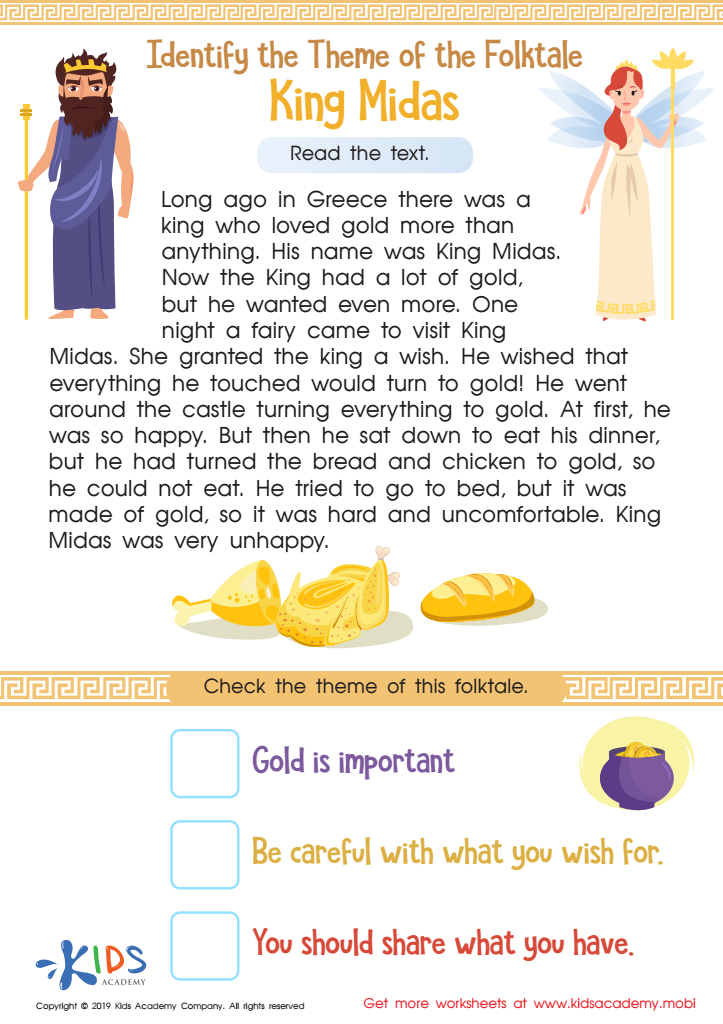

King Midas Worksheet
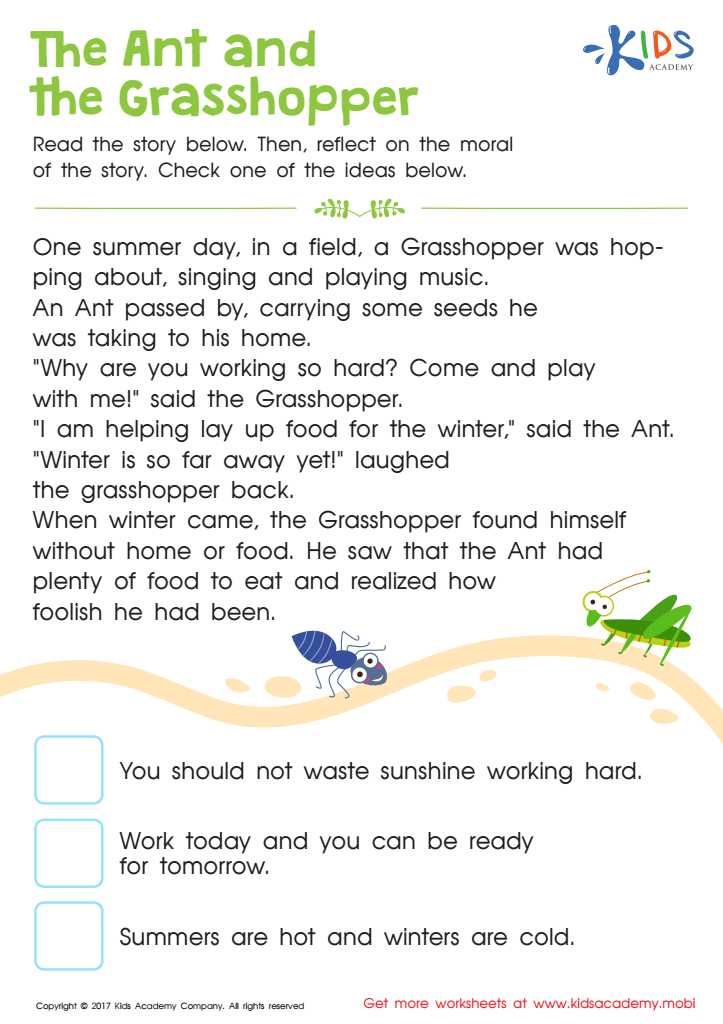

The Ant and The Grasshopper Printable
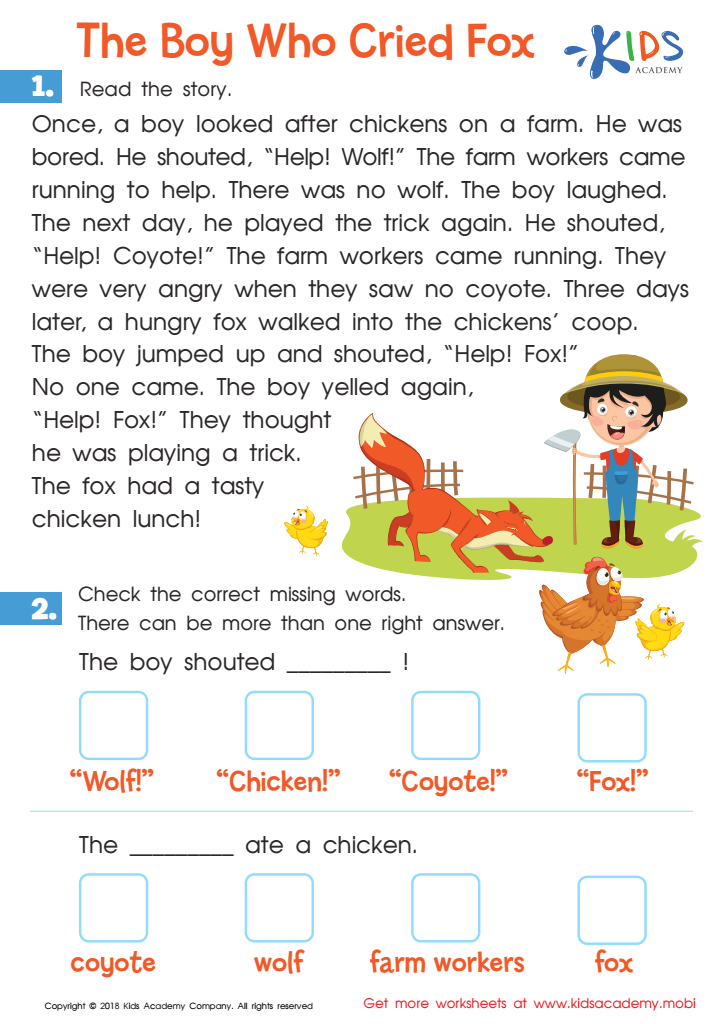

The Boy Who Cried Fox Worksheet
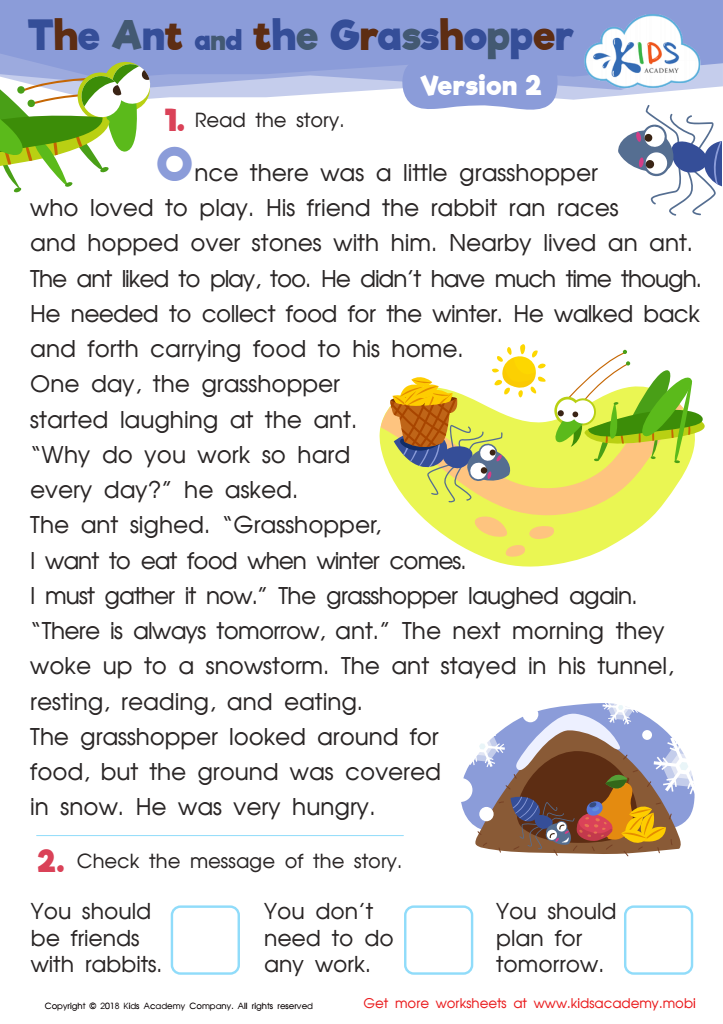

The Ant and The Grasshopper Version 2 Worksheet
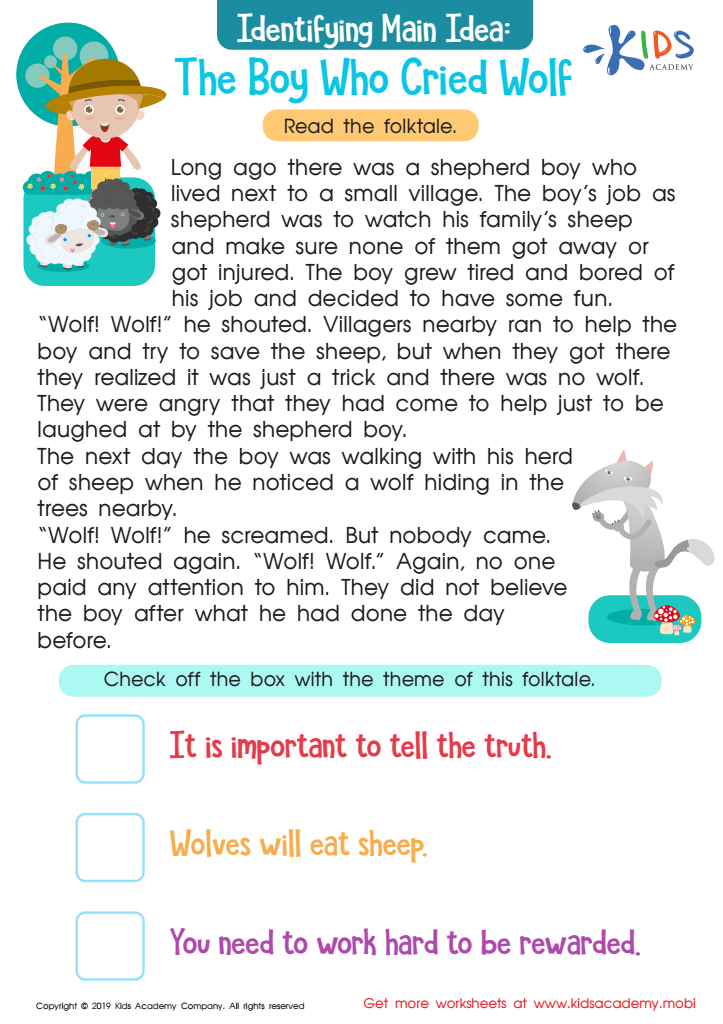

The Boy Who Cried Wolf Part 2 Worksheet
Question/Answer
What does the Moral lesson understanding skill mean when it comes to Grade 1 Reading Fiction learning?
The Moral Lesson Understanding skill in Grade 1 Reading Fiction involves helping students identify and grasp the lesson or message conveyed through a story. This skill teaches children to recognize the underlying principles or morals characters learn, which often reflect ethical behavior or life lessons, contributing to their moral development and comprehension of narrative content.
How does the mastery of the Moral lesson understanding skill affect a student's performance at an early age?
Mastery of the Moral Lesson Understanding skill at an early age significantly enhances a student's ability to empathize, cooperate, and make ethical decisions. This skill fosters social and emotional development, promoting better interactions with peers and adults.
How to train the Moral lesson understanding skill in Grade 1 students learning about Reading Fiction?
To train Grade 1 students in understanding the moral lesson in fiction, incorporate stories with clear, relatable morals. Use engaging activities like role-playing, drawing, and group discussions to reflect on the story's message. Ask questions that guide them to connect the story's outcome with the moral, and encourage sharing personal experiences related to the lesson.

 Assign to the classroom
Assign to the classroom












